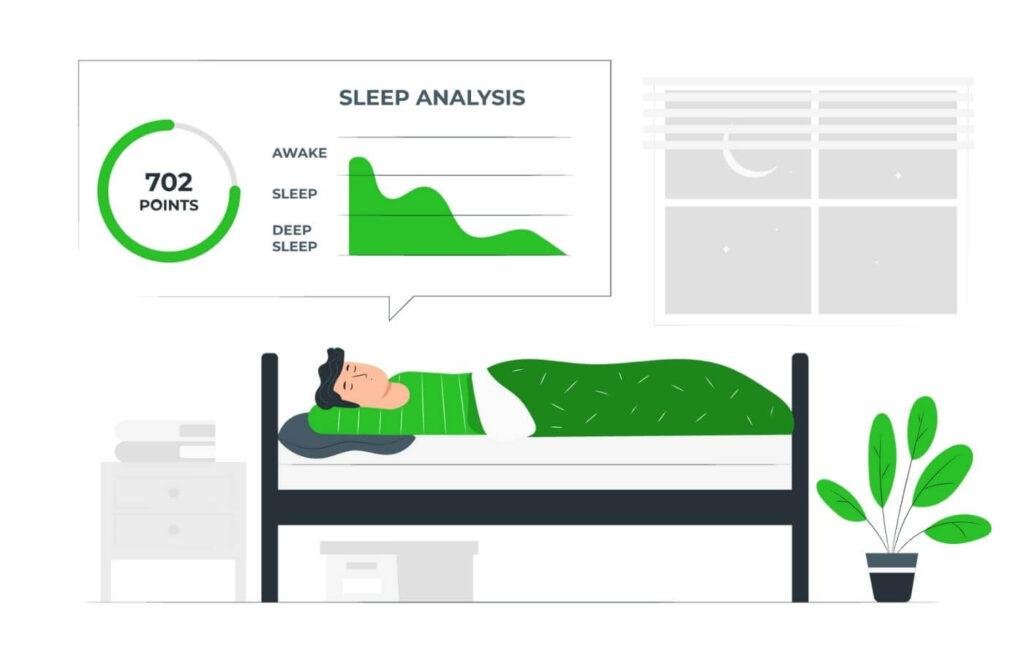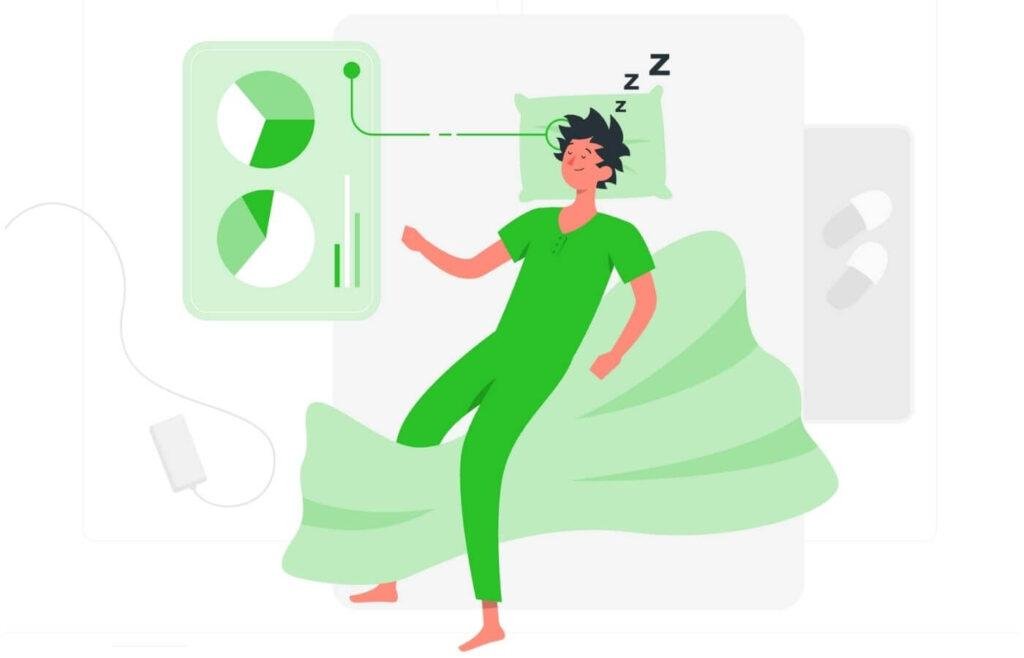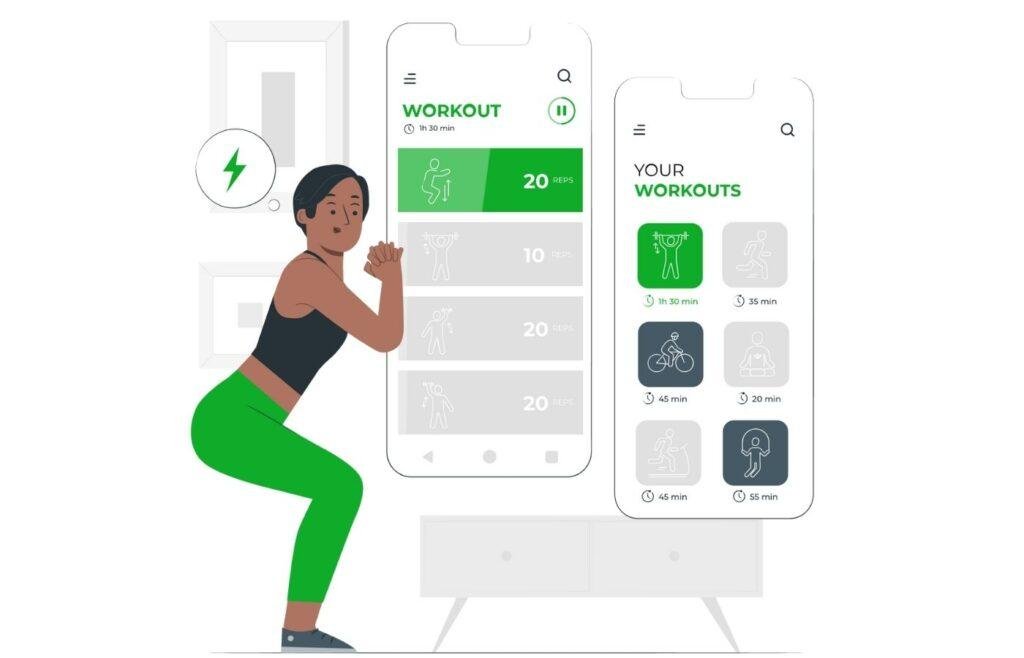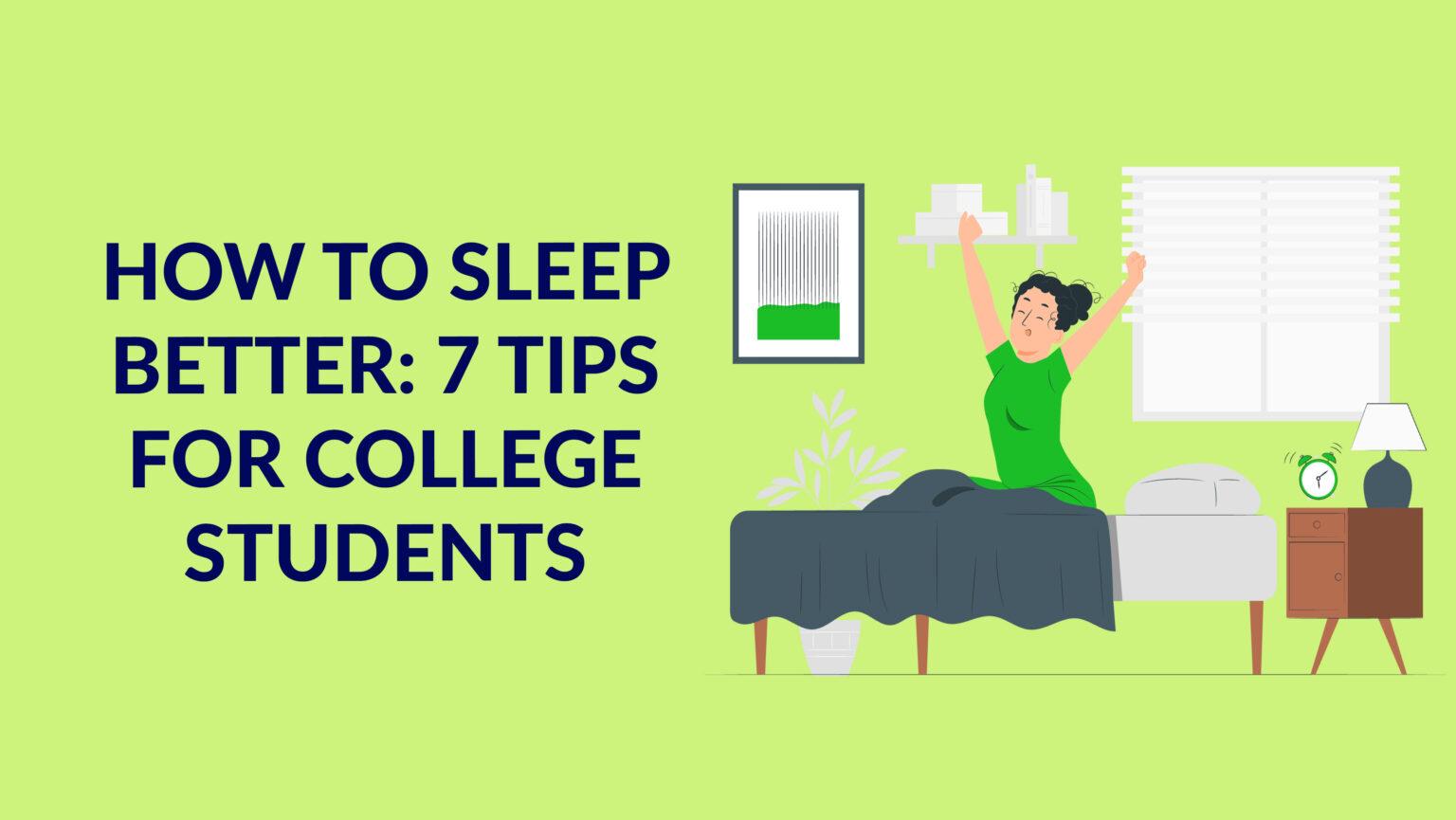If you’re searching for how to sleep better during college, let’s find out! College is such an important phase of any student’s future and I know perfectly well how exhausting it can be.
Between classes, meetings, exams, and extracurricular activities, students can easily get overwhelmed and have way more on the academic place than they can handle.
If this happens unfortunately, it affects the student’s (your) sleep schedule, or hours of sleep, directly, which can in turn also bring down your academic performance and make you more likely to lose focus in class.
However, the good news is that it’s possible for college students to get better sleep and feel more refreshed during the day now more than ever before. In this guide, I’ll share my tips on how you can achieve nighttime bliss while still taking advantage of what college has to offer!
Of course, the popular hacks will tell you to avoid blue lights, low caffeine intake, keep a sleep diary, and avoid bright lights or bright screens, but I get into much more specific tips and details!
So, if you want to maximize your college experience and make sure that you’re well-rested during midterms and finals season, then take advantage of the knowledge in this How to sleep better guide! Stick around to find out more!
Table of Contents
- Why is sleep so important?
- Create a decent bedtime routine for yourself
- Separate your schoolwork and bedtime
- Don’t consume any alcohol at least 3 hours before you sleep
- Make regular exercise a part of your daily routine
- Do your homework early in the morning instead of late at night
- Wherever you are sleeping, make sure it is comfortable
- Reduce your day naps
- Final Words
Why is sleep so important?

When it comes to explaining why sleep is so important, I am going to have to get a little scientific here so bear with me.
First and foremost, sleep is important for consolidating memories and learning new information. When we sleep, our brains process and organize the information we’ve taken in throughout the day. This means that getting a good night’s sleep can actually improve your memory and ability to retain new information.
So, if you’re studying for an exam, it’s a good idea to get a solid night’s sleep before the big day.
Whenever you have something important regardless of whether or not it is related to college, you should make sure you are getting enough sleep prior. Consider it a rule of thumb!
Not only that but in addition to improving memory and learning, getting enough sleep is also important for managing stress and mental health. Lack of sleep can lead to increased stress and anxiety, as well as decreased mood and cognitive function. On the other hand, getting enough sleep can improve your mood and overall sense of well-being.
You probably already know how sleep is important for maintaining physical health as well. It’s no secret that college students often engage in unhealthy behaviors like drinking, smoking, and staying up late.
But, getting enough sleep can help counteract some of these negative effects on the body. Sleep has been shown to improve immune function, reduce inflammation, and even lower the risk of chronic diseases like diabetes and heart disease.
To conclude this section, I can say it’s clear that getting enough sleep is essential for college students.
So, even though it can be tempting to stay up late studying or socializing, make sure to prioritize your sleep. Your brain, body, and overall well-being will thank you!
I understand how the ever changing situation of the world and everything going on can keep you up at night or mess with your desire to go to bed now that life simply feels like it is too short, but silver linings exist and hopefully, this article can help you see that again and prioritize the wellbeing of your body when you should!
Next up I will explain how you can slowly start to build a good sleeping schedule again, so unless you have absolutely chronic insomnia, then this article should come in handy!
Create a decent bedtime routine for yourself

Creating a routine is the first step in attempting to get your sleep schedule back to normal.
Routines offer structure and help organize your days in the most efficient way possible. With efficient time management, you will benefit from better concentration throughout the day and improved quality of sleep at night.
Creating a simple schedule of activities or tasks that need to be completed during the day helps you establish an efficient and reliable routine. It not only helps you stay organized but also reinforces restful sleeping habits by giving your body cues that it’s time for bed once it gets darker outside.
Having a regular, consistent bedtime is also incredibly important for maintaining good internal rhythms so that your body knows when to expect restful sleep each night.
Separate your schoolwork and bedtime
You have to know how to differentiate between bedtime and whenever else you have to dedicate your time for school work, this is an absolute must when you are trying to get a hold of a good night sleep!
Creating a hard line between school work and bedtime is non-negotiable when it comes to better sleep. Work diligently to complete your homework and studies before you commit to laying down for the night.
Once you decide it is time for bed, move away from any areas where you engage in school work and transition towards an environment dedicated exclusively to restful activities.
No computers, phones, or TVs in the bedroom! Set a designated time window for use of these technologies before sleep and establish boundaries that are rigorously adhered to.
The goal for you here is to create the mental and physical demarcation between “work mode” and “sleep mode” so that your body can actually recognize that it needs to reduce or stop all operations!
Don’t consume any alcohol at least 3 hours before you sleep
It is hard to be in college without being faced with alcohol because a big part of the college experience consists of drinking and lots of alcohol.
Don’t worry though, I am not telling you that you cannot absolutely drink because if that is something you like to do you can still do it -always moderately- however, if you want to put your sleep schedule on track you will have to call it a night with alcohol a lot sooner than your peers!
I am very well aware of how tempting it is to try and sleep off the effects of alcohol before an important exam or presentation, but abstaining from alcohol is best. This is because drinking any kind of alcoholic drink even just an hour before bed can impair your sleep quality and leave you feeling exhausted the next morning.
To explain it very simply, alcohol suppresses Rapid Eye Movement (REM) sleep, which impacts our mental alertness. A glass of beer may put you to sleep faster, but when it wears off, you’ll be tossing and turning due to poor sleep quality.
Another thing that alcohol does is it may also widen your sleeping window which makes it harder for students to get up for early morning classes or photoprint sessions. So if you’re trying to get better sleep, it’s best to avoid drinking alcohol at least 3 hours before you call it a night!
The bottom line is that you have to reduce your alcohol intake or even better, don’t drink alcohol before bed all together!
Make regular exercise a part of your daily routine

Aside from fixing your sleep schedule, exercising should be something that you do on the daily because your health needs it.
But, in this context, if you are having regular exercise and eating healthier, you are giving yourself a chance at having a proper sleep schedule every single night!
But don’t just jump in without some planning! Make regular exercise a part of your daily routine by setting achievable goals, such as hitting the gym 3-5 days each week. Schedule these appointments in your calendar and stick to them no matter what, even if you are tempted to stay in or do something else that seems more fun than sweating your body off!
This will also help you gain control over your stress levels. Exercise is harder when you’re pressed for time, but easier when you plan ahead!
Opt for healthier dinners too that can bring you fantastic benefits in terms if how you sleep!
Also, choose activities that initiate relaxation rather than ones that are full of intensity and stimulation, like bedtime yoga, for example, make it a bedtime ritual. This way you can find balance between building up your strength and calming down after the workout too.
Also Read; How To Balance Your School, Work, And Social Life
Do your homework early in the morning instead of late at night
One of the best strategies for students who want to get better sleep is to do their homework early in the morning instead of late at night. Students are tempted to stay up all night working on projects, but this prevents them from getting the proper amount of sleep they need.
Doing this instead helps you break the cycle of being sleep-deprived and productive during the day. Doing homework first thing in the morning shifts your focus to schoolwork, so you’re not tempted to stay up too late studying or playing video games!
Plus, by finishing your assignments before bedtime, you enjoy more restful nights with no worries about upcoming tests or exams. You can go to bed knowing that you got it all done!
Better yet, if you spend quality time learning in the mornings, your grades will improve and you’ll be able to tackle anything that comes your way with confidence and a lot of enthusiasm!
Wherever you are sleeping, make sure it is comfortable
You can apply all the tips I have mentioned above, but if your bed is the issue these tips are not nearly as impactful.
Start by making sure your bed and mattress are comfortable, or if necessary buy a new one that suits your needs better.
Be sure to get yourself some quality pillows too – ones that support your neck and head, not just your wallet! You may need to experiment with different combinations of materials and density until you find something that works for you.
Also, get yourself some soft sheets and blankets so that when the temperatures drop at night, you can cozy up without feeling uncomfortable or freezing.
Last but surely not least, add some calming decorations like art prints to help relax your mind and unwind after a long day of studying.
Reduce your day naps
Having an occasional daytime nap is ok if it helps with stress relief but try not to nap too late in the day or for more than 30 minutes.
Stick to a consistent bedtime schedule so your body starts associating going to bed with feeling tired and ready to go. If you feel tempted by a midday snooze, find other activities such as taking a brisk walk or reading instead.
This way, your mind and body will start honing in on what’s important – getting enough restful sleep – and you’ll wake up feeling rested and energized!
Also Read; How To Study Effectively
Final Words
Managing good sleep along with all the other demanding tasks that you have to do in college can be quite rough which is why I made sure this article was inclusive as it can be with different tips and tricks to help you get some much needed night’s rest!
If you follow these tips, your sleep will gradually start to get better and you will find yourself feeling more energized by the day to tackle your academic tasks!
Ok, that’s it for today, we covered the topic of How to sleep better and try to guide you with some useful tips. If you like our content, you’ll find more on our student blog.
Good luck!




